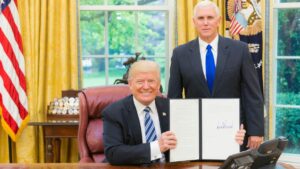The United Nations is set to reimpose sanctions on Iran this Saturday over alleged violations of the 2015 nuclear deal with world powers. Britain, France, and Germany—known as the E3—initiated a “snapback” process 30 days ago, claiming Iran failed to comply with the agreement designed to prevent the development of nuclear weapons. Iran, however, denies pursuing nuclear arms.
“It is not like the sky is falling,” Iranian President Masoud Pezeshkian said, attempting to downplay the situation.
In response to the sanctions, Iran is recalling its ambassadors from Britain, France, and Germany for consultations.
Economic Impact Already Felt
Iran’s economy is already under strain from sanctions reinstated by the US in 2018 after former President Donald Trump withdrew from the deal. The country’s currency, the rial, dropped to a record low of 1,123,000 per US dollar on Saturday amid fears of new restrictions.
The upcoming UN sanctions will include:
- An arms embargo
- Restrictions on uranium enrichment and reprocessing
- Limits on ballistic missile activities
- Travel bans for dozens of Iranian individuals
- Asset freezes
Countries worldwide are authorized to seize items prohibited under these sanctions, and Iran will be barred from engaging in commercial activities involving nuclear materials and technology in other nations.
Diplomatic Efforts Falter
European powers had proposed delaying the sanctions for up to six months to allow for negotiations, contingent on Iran granting UN nuclear inspectors access and addressing concerns about its enriched uranium.
Iranian Foreign Minister Abbas Araqchi accused the E3 of failing to reciprocate Iran’s proposals to keep diplomacy open.
Regional Tensions Rise
The reimposition of sanctions comes amid escalating tensions in the Middle East, just months after US and Israeli strikes targeted Iranian nuclear sites.
Russian Foreign Minister Sergei Lavrov criticized the sanctions as “unlawful” and warned the UN Secretary-General against recognizing them.



